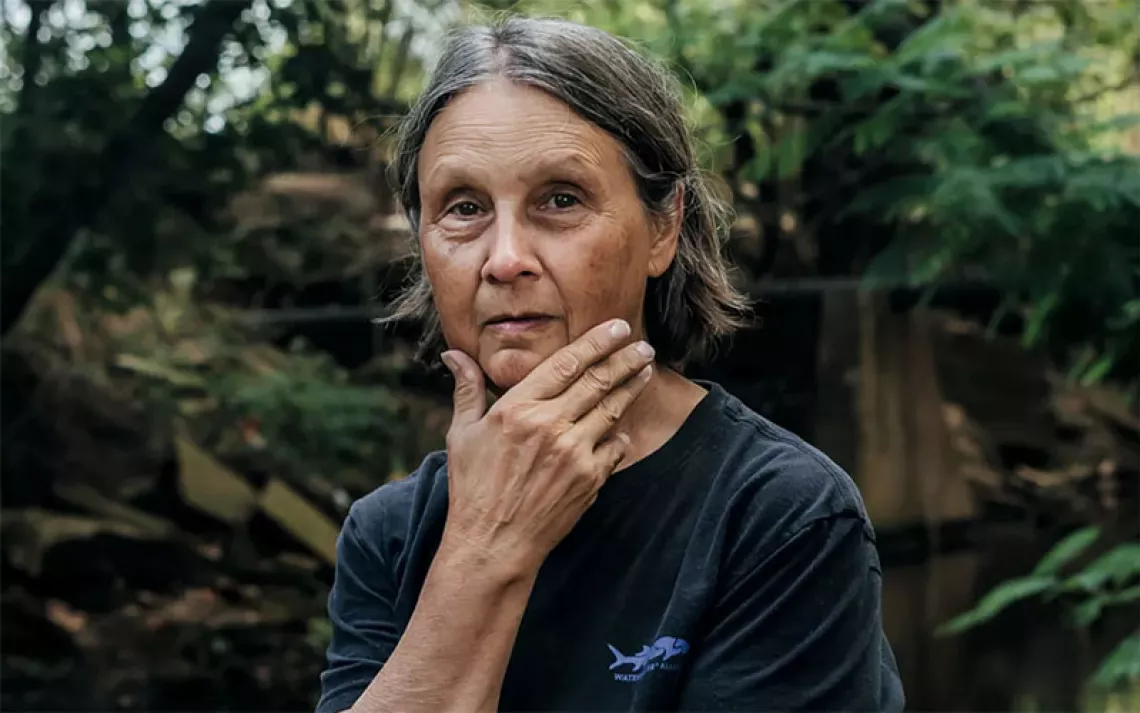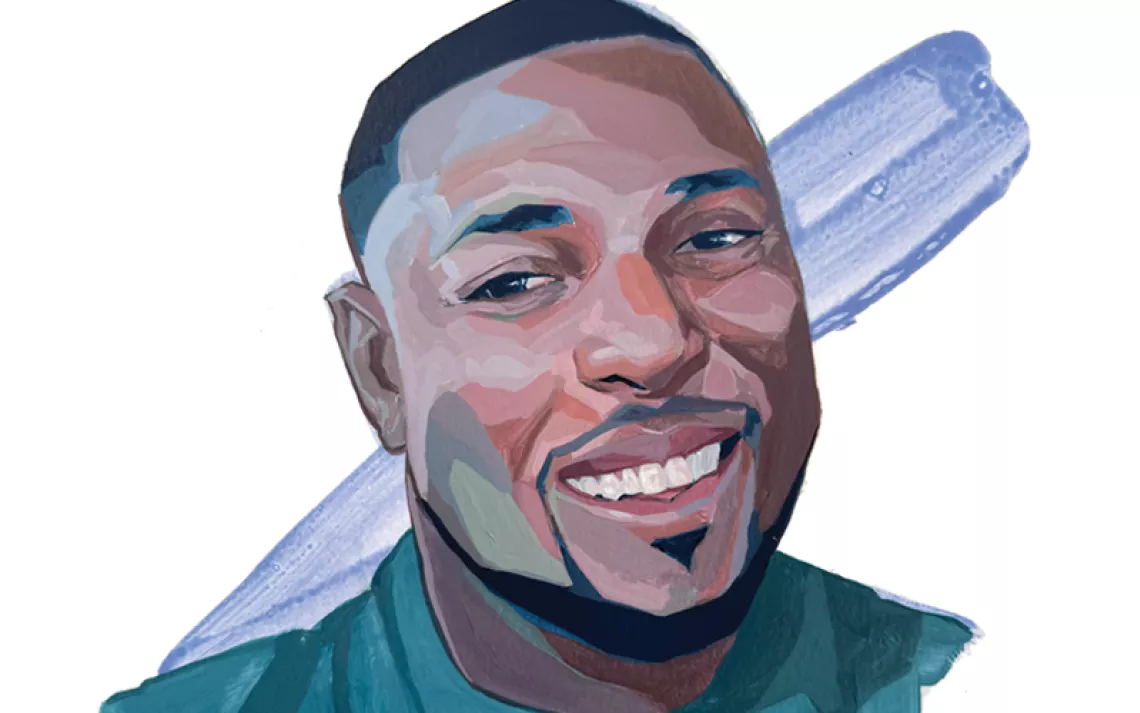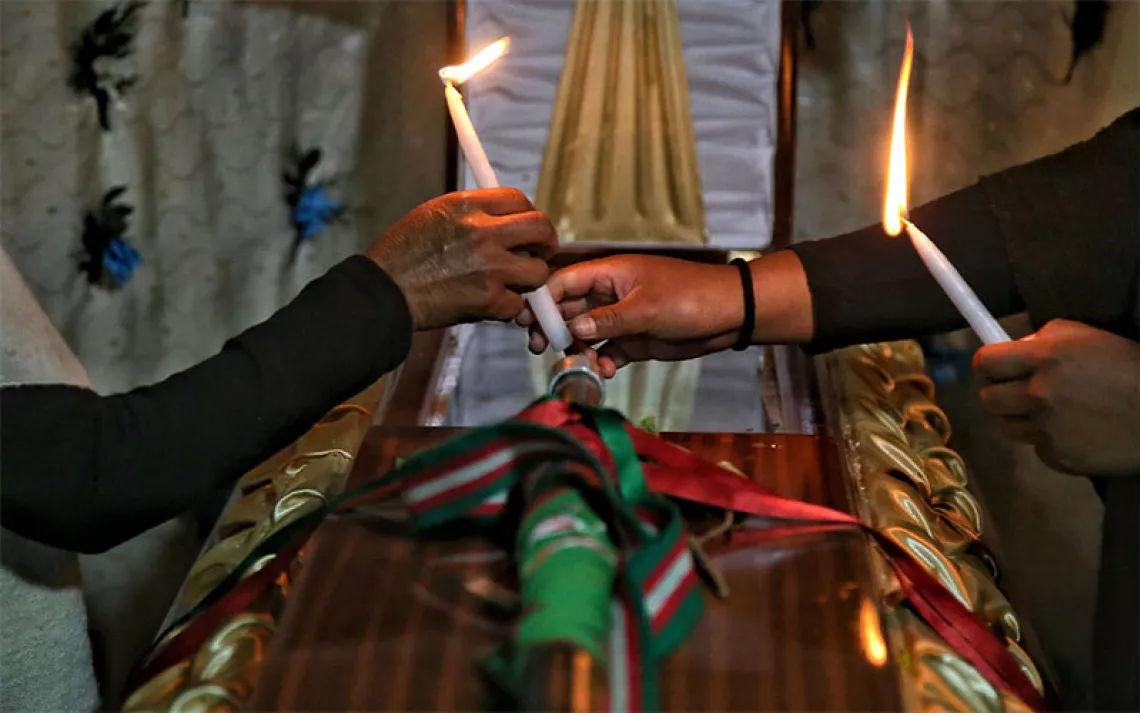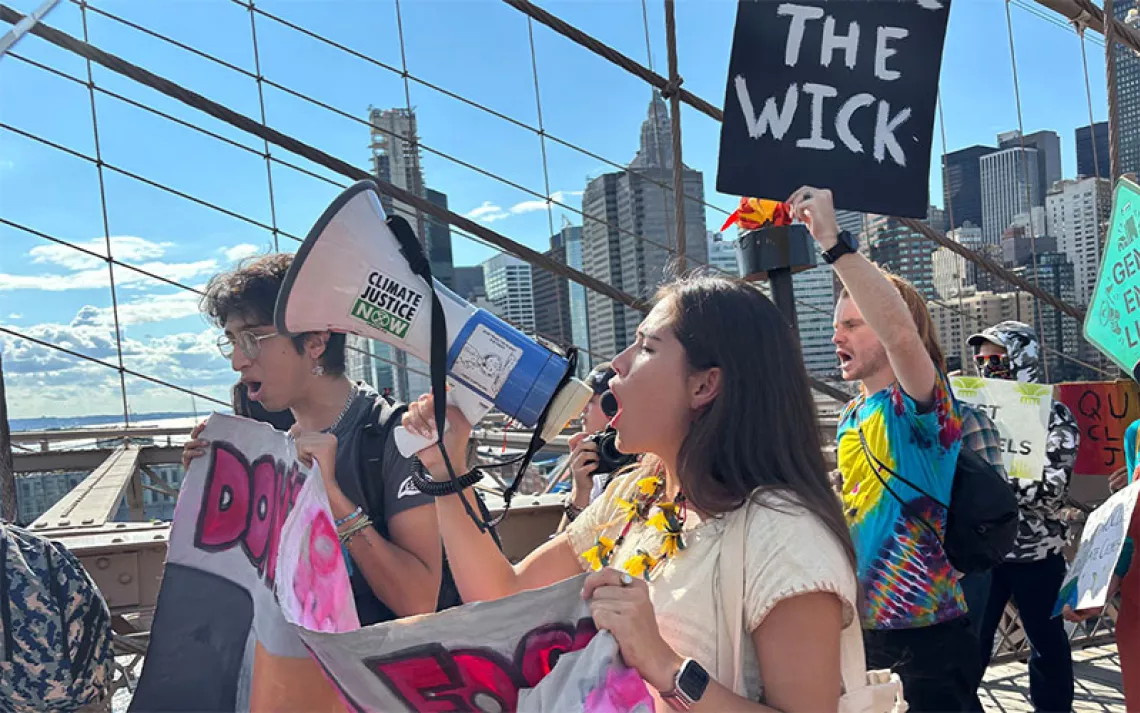Varshini Prakash Has a Blueprint for Change
The Sunrise Movement tackles climate change and income inequality

Varshini Prakash is the cofounder and executive director of the Sunrise Movement. | Photo by Kayana Szymczak
Varshini Prakash was in sixth grade when the 2004 Indian Ocean tsunami hit Chennai, the city in India where her grandmother lived. She remembers how powerless she felt, watching the footage at home in Acton, Massachusetts. Not knowing what else to do, Prakash gathered cans of food to donate to the Red Cross.
In high school, Prakash was shocked to learn about the Great Pacific Garbage Patch and other environmental problems, but aside from joining the recycling club and micromanaging how her friends recycled, she didn't have an outlet for her anger. She made a pact with herself that college would be different.
At the University of Massachusetts Amherst, Prakash became involved in the school's fossil fuel divestment campaign and spoke publicly for the first time at a rally. "I just fell in love with organizing in a way that I had never imagined," she says.
But the more Prakash engaged with the issue of climate change, the more frustrated she grew with politicians unwilling to address it. What, she wondered, would an effective political movement demanding a response to the climate crisis look like?
In 2016, she and 11 of her peers started meeting regularly to try to answer this question. For over a year, they studied the civil rights, anti-apartheid, and other movements, creating the blueprint for what would become the Sunrise Movement—a youth-led grassroots effort intent on stopping climate change and promoting a just economic system.
Last November, the group made headlines when it staged a sit-in outside Democratic leader Nancy Pelosi's office and (then representative-elect) Alexandria Ocasio-Cortez showed up.
Since then, Prakash and other Sunrise activists have held high-profile sit-ins and protests across the country to build support for the Green New Deal. They also work to get candidates for office to forgo fossil fuel donations and commit to making climate change a campaign priority.
"We do the big moments—like at Pelosi's office—that kind of shift the center of gravity," Prakash says. "And we use that momentum to build organizing on the ground that won't peter out."
This article appeared in the July/August 2019 edition with the headline "Blueprint for Change."
Broad Support
According to a study by Yale and George Mason Universities, 92 percent of Democrats and 64 percent of Republicans are in favor of a Green New Deal.
 The Magazine of The Sierra Club
The Magazine of The Sierra Club



